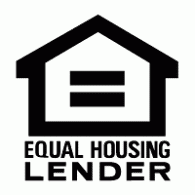- 14362 N. Frank Lloyd Wright Blvd., Suite 2134 Scottsdale, AZ 85260
- Mon - Fri: 8:30am - 6:00pm
You have the 3C’s: Credit, Collateral & Capacity. Yet the bank won’t trust your financials because you’re a self-employed individual and your business has uneven cash flows. Well, you’ve landed on the right page as we can qualify you based on your deposits for the last 12 or 24 months!
Why Refinance? Here’s 12 good reasons to get bank statement loans for self-employed borrowers
Low-interest rates are the most common reason self-employed borrowers refinance and get bank statement loans but are there other reasons? Yes! There are several beneficial reasons to refi your current loan and here’s a brief list that we’ve compiled through our years of experience.
All of these may not apply to you, but we bet you can find several reasons that apply to you!
Want to see a more accurate refi scenario? Give us a call today and see what a difference refinancing can make in your life.
A cash-out refinance is the most convenient way to access your home equity. Use the money to pay for higher education, make home improvements, invest in an income property, or pay off debt. Today’s low rates make a cash-out refi a smarter choice than taking out a personal loan.
Your financial health has a significant impact on your loan terms. If your credit score has gone up and you’ve removed negative items from your credit history, you probably qualify for a better rate.
Not sure if this applies to you? Contact us for a free review to get a bank statement loan for self-employed borrower!
Maybe you weren’t too keen on the original mortgage, but you agreed because it was the only one you could qualify for. Now that you’re in a better financial position, you have more home loan options to choose from. Low rates combined with no PMI makes conventional home loans one of the most popular loan products in this situation.
Maybe you started with the idea of paying off your mortgage as quickly as possible, but now making large payments isn’t feasible. Refinancing to a 30-year term can ease the burden by reducing your monthly payments into one that you can comfortably afford.
In divorce cases, one spouse buys out the other to remove them from title and the loan. If you have a co-borrower and you now need to remove them, refinancing can do that just that. Even though you can remove someone from title, it’s not that simple for a mortgage. You must refinance to remove the other borrower from the loan.
Some homeowners like to take out some of their equity even just to set aside for a rainy day. Home prices adjust all the time. So, if you see your home value has gone up, you might want to access that equity while it’s on the upswing.
On the other hand, you may have recently inherited some cash and are looking to reduce your mortgage balance. Instead of just applying that lump sum into your current loan, consider refinancing into a shorter-term loan as well as use the lump sum. This way, your rate will be lowered, your loan will be paid off faster plus your monthly payment may not even increase!
Have a second mortgage? Refinancing can consolidate your loans into one. A second mortgage comes with higher interest rates, so consolidation makes sense if you want to both save money and the headache of dealing with several mortgages.
If rates drop by half a percentage point (.5%) that would mean a $2,000 savings in interest payments on a $400,000 loan. It behooves you to look into refinance options especially if you plan to stay in your home for the long term. You could also ask us for a “No Closing Costs Option” where in return for a slightly higher interest rate than the market, the yield in the rate would absorb the closing costs.
If you’re self-employed, it can be hard to get a mortgage. Traditional lenders often ask for years of tax returns and other documentation that can be difficult to produce if you’re self-employed. But there are alternatives.
Bank statement mortgage loans are designed specifically for self-employed borrowers. With this type of loan, you don’t have to provide traditional documentation like tax returns: we look at your bank statements to evaluate your income.
This makes it much easier to get approved for self-employed borrower bank statement loan, even if you’ve never worked for a company at all in the past. So, if you’re looking to buy a home and are self-employed, you’ll be delighted to check out our bank statement loan program.
A bank statement loan, otherwise known as a self-employed mortgage loan, is a loan program that allows you to obtain the finances you need for a home without the traditional income documentation that a conventional loan requires. Simply put, a bank statement personal loan for self-employed allows you to get a loan without submitting tax return documents, W2s, and pay stubs.
Rather, you will need to provide a 12- or 24-month bank statement from your bank. This type of bank statement personal loan is beneficial to self-employed individuals like:
One of the advantages of a bank statement personal loan for self-employed is that it provides you with the finances you need without putting you through the hassles of conventional loans. Because the loan program is based on your bank statement, the underwriting process is usually swift and easy.
As the name implies, bank statement loans work with bank statements as the basis of income verification. Most self-employed individuals don’t have conventional employers that provide them with W2s and pay stubs. This makes it difficult for them to verify their incomes with conventional lenders.
Moreover, because self-employed individuals can write off a lot of business expenses, their tax returns cannot serve as an accurate proof of income. This makes it even for more harder for them to qualify for seloans.
Even when they do, the tax return documents and business write-offs reduce their actual income, reducing the loan amount they can qualify for.
Enter bank statement personal loans for self-employed, a loan option that considers the income nuances of self-employed individuals. This loan option considers the borrower’s bank statements for a minimum of 12 or 24 months, depending on the loan amount required and the lender.
Lenders like Blake Mortgage use a 12-month bank statement showing the monthly deposits of the borrower for the past 12 months. We also require the borrower to provide a credit score and a minimum of 15 to 20% home equity.
Borrowers with a high credit score and higher down payment can easily qualify for better rates and loan terms. Nonetheless, we also provide loans for borrowers with credit scores as low as 620 so long as they can provide verifiable bank statements from their personal bank accounts.
Even if the bank statements are from multiple banks, we will still accept them as long as the statements can verify monthly deposits into the borrower’s account.
Furthermore, for borrowers looking for self-employed mortgage loans for their businesses, the same conditions also apply. We will need bank statements for the business showing the income of the business. We will also require a profit and loss statement of the business to enable us to calculate the DTI of the business.
The first thing you need to qualify for a bank statement loan at Blake Mortgage is your 12-month bank statement from your bank. This can be from a single bank or a combination of multiple banks.
Once you have your bank statement ready, other documents you will need to provide include:
The shift from conventional employment to remote jobs and other self-employed gigs is rising in today’s fast-paced world. This means that more and more people are becoming self-employed as the days go by.
Even though banks and other financial lending institutions are aware of this, the demand for traditional income verification still exists for conventional loans. That means self-employed individuals must find other loan alternatives if they want to secure a personal loan or own a home.
If you are self-employed and find it difficult to get a loan because of your income, then a self-employed mortgage loan is the best option.
At Blake Mortgage, we provide some of the most competitive rates in the market, along with flexible repayment options. In addition, we have a team of experts ready to help you through the entire process from start to finish.
Contact us today so we can help you get the best bank statement loan that meets your needs.
You need a good credit score to get a bank statement mortgage loan for self-employed borrower. This means having a credit score of 620 or higher.
Borrowers with high credit scores of 700 or higher usually have access to better rates and favorable loan terms. However, we still provide competitive rates for our customers with credit scores of 620 and higher.
We’ve been helping customers afford the home of their dreams for many years and we love what we do.
Company NMLS: 150459
www.namb.org


© Copyright 2024 Blake Mortgage. All rights reserved.